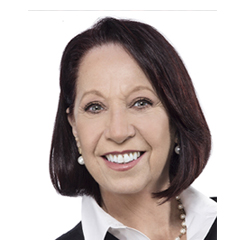
Coaching supervisors create for coaches a safe, collaborative space, to reflect on their work and explore interventions, relationships, biases, ethical issues, blind spots, and emotional challenges. Enrich your career, grow your skills, expand your offerings, and master the craft of coaching supervision earning 36 CCEUs. The certification is accredited by EMCC.
What is coaching supervision?
The European Mentoring & Coaching Council (EMCC) defines coaching supervision as: “The interaction that occurs when a coach brings their coaching work experiences to a supervisor in order to be supported and to engage in reflective dialogue and collaborative learning for the development and benefit of the coach, their clients, and their organizations.”
According to the International Coach Federation, “Coaching Supervision focuses on the development of the coach’s capacity through offering a richer and broader opportunity for support and development. Coaching supervision creates a safe environment for the coach to share their successes and failures in becoming masterful in the way they work with their clients.”
Coaching supervision differs from coaching and mentor coaching. Coaching is designed to help clients achieve their objectives through self-awareness, goal setting, and action planning. Mentor Coaching is focused on developing the core competencies and skills required for coaching by receiving feedback from coaching sessions. Coaching supervision works on creating a safe space for the coach and supervisor to reflect on how the personal intrudes on the professional, the systems that impact their work, and how is the coach showing up with their clients. Coaching supervision supports the coach’s awareness, growth, and effectiveness.
Supervisors

Alicia Aguero, MCC, ESIA

Susie Warman, MCC, ESIA

Lily Seto, PCC, ESIA

Nancy Tylim, MCC, ESIA

Lynn Harrison MCC, ESIA

Meryl Moritz, MCC, ESIA

Paul Sanbar PCC, ESIA

Eva Hirsch Pontes, MCC, ESIA

Inga Bielinksa, MCC, ACTC, ESIA

Norma Perel, MCC, ESIA

Hilary Oliver, MCC

Eliane Fierro, MCC

Jeff Nally, PCC
Why supervision?
Benefits:
- Improved client results through improving the quality and effectiveness of coaching.
- Professional support for coach to develop coaching skills and improved coaching strategies for challenging client situations.
- Competitive differentiation on corporate contracts to maintain and enhance coaching quality standards.
- Continuing professional development (CPD) of the coach. Note that supervision is recognized by the ICF for core competency Continuing Coach Education (CCE) hours.
Who may benefit from coaching supervision?
- Professional coaches in private practice.
- Internal corporate coaches.
- Coaches wishing to maintain a coaching credential with the EMCC.
How does supervision work?
Supervision can be done in a one-on-one setting or in groups. Coaching supervision is fundamentally a reflective process. Coaching supervisors create a confidential, safe space for coaches to explore their own thought processes and the dynamics present in client engagements. This often includes:
- Analysis of coaching case studies to better understand options for coaching strategies to improve client outcomes.
- Reflection on the coaches internal thought processes and assumptions.
- Revealing blind spots.
- Exploring ethical issues and contracting challenges.
- Brainstorming solutions to complex and challenging client situations.
- Appreciating and celebrating the accomplishments of the coach.
- Providing accountability and a sounding board for ideas.
We draw upon industry-leading best practices for supervision leveraged from other helping professions including organization development, human development, systems theory, adult learning, transactional analysis, humanistic psychology, psychodynamic theory, psychological type, social psychology, and others.
We are experts in the use of the Seven-Eyed Model created by Peter Hawkins and Robin Shohet. This model examines the client-coach-supervisor system from seven different perspectives. These include: (1) the client’s context, (2) the coach’s interventions, (3) the relationship between the coach and the client, (4) the coach’s self-awareness, (5) the relationship between the coach and supervisor including parallel processes, (6) supervisor’s reactions and reflections, and (7) the wider context and system. Using the Seven-Eyed Model, the supervisor and supervisee engage in rich dialogue and reflection resulting in insights that can expose blind spots, deepen self-awareness, and open possibilities for new client interventions.
Coaching Supervision Certification Program
Objectives and Agenda
The Coaching Supervision Certification is targeted at experienced coaches with at least 500 hours of experience and a credential (preferred, not mandatory) from a coaching association: ICF, EMCC, or AC. Participants will be trained as individual and group supervisors and by the end of the program, they will be eligible to apply for a credential with the European Mentoring and Coaching Council (EMCC). This training program has received the ESQA, EMCC European Supervision Quality Award and provides 36 CCE units(ICF Coaching Continue Education Units, 32 Core Competencies).
This program aligns its contents very closely to the competency model developed by EMCC and motivates graduates to apply for the EMCC Supervisory Credential as a way to strengthen the Coaching Supervision Practice Worldwide.
The program is very interactive and experiential with an emphasis in application and reflective practice. After distinctions, models, and theories are presented, participants apply concepts in exercises and practices with their colleagues. Participants need to receive supervision as supervisees as part of the program, practice in triads with colleagues from the program and practice with supervisees outside the program.



